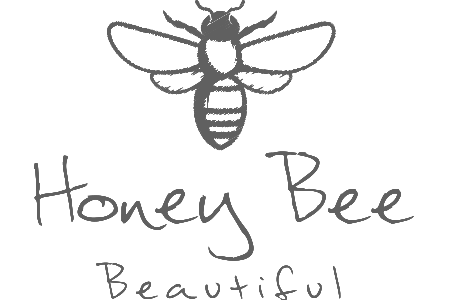
With our hectic lives we can easily find ourselves popping on our make up without fully knowing what is ACTUALLY in the products that we put on our skin everyday.
Did you know?
Many synthetic chemicals (read on for more info on these) are often utilised in products to increase their wearability, durability and spreadability. But, what are they doing to us and to the environment?
How are we to know what’s hidden in our make-up?
Frustratingly, the beauty industry does not make it easy for us to make cruelty free, health and eco conscious decisions when choosing our cosmetics.
Many ingredient labels, if you can even find them, use complicated wording for us to wade through making it difficult for us, as consumers, to make informed choices.
Truly Transdermal

Our outer epidermis is not a complete barrier so, synthetic chemicals that we put onto our skin have the potential to enter our bloodstream and affect our health.
Would We Be Happy To Directly Consume What We Put On Our Skin?
A 2015 study by the Centers for Disease Control and Prevention found that 97% of people tested contained PFAS (these are known as “forever chemicals” because they do not breakdown in the environment) in their blood. As make up is applied to and near the eyes and lips these PFAS are readily absorbed via tear ducts and mucous membranes into our bloodstreams.
Growing evidence (healthline.com) suggests that these PFAS pose serious risks to our health, including, according to Dr Alexis Parcells, amongst others, birth defects, asthma, hormone disruption, liver and thyroid disease and cancers.
So, What Ingredients Should We Look to Avoid?

-
Parabens and Phenoxyethanol
What are they?
Be wary of products containing these terms anywhere in the ingredients list (often attached to the end of another word such as “propylparaben” or”butylparaben”) and be sure to avoid these preservatives.
Why should they be avoided?
Parabens such as Phenoxyethanol (found in 70-90% of cosmetics!) have been found to interfere with hormones and have been linked to breast and skin cancer, and, at the very least, skin irritation. They are preservative chemicals that mimic oestrogen and are widely found in make up (and shampoo and deodorants) to promote product longevity.
What’s the alternative?
Look for make-up brands labelled “paraben free” and that make use of natural preservatives such as preservative eco.
Here at HBB our products – deos and shampoos included – are all paraben free. We use COSMOS and ECOCERT approved preservative eco in our facial spritzes, and make use of nature’s naturally preserving oils and beeswax in our lip balms and tints. For more information on our eco credentials click HERE
-
Phthalates and Synthetic Fragrances
What are they?
Phthalates are platicising chemicals found in cosmetics to aid their spreadability - be on the label lookout for the terms phthalate, DEP, DBP, DEHP and fragrance.
Why should they be avoided?
These nasties are often found in American brands of perfumes and fragranced make up and have been linked to a whole host of health issues, including cancers and asthma. Synthetic fragrances could also exacerbate eczema and other skin irritations.
What’s the alternative?

Choose fragrance free make up or cosmetics formulated using only pure, natural essential oils for scent. Opt for cosmetics that are labelled “phthalate free” and avoid those packaged in plastic – choose those in glass containers instead.
Did you know all our products use only natural essential oils, are completely phthalate free? For extra delicate sensitive skins we would recommend our Sensitive Bee range which is completely fragrance free.
-
Petroleum

What is it?
Petroleum, petrolatum or petroleum jelly is commonly found in mascara and lip balm - most infamously in the popular and well known Vaseline brand! These petroleum distillates are the by product of petroleum refining and produced in the same oil refineries as motor fuel and heating oil – probably not something you would want around your eyes or lips?!
Why should it be avoided?

This ingredient has a softening effect recommended for dry skin as it creates a barrier preventing moisture from escaping. However, unlike natural ‘barrier’ style ingredients such as beeswax, which is a humectant and attracts moisture from the air, petroleum prevents such absorption of moisture from the air, actually serving to suffocate the skin. So, eventually your lips will dry out which leaves you feeling like you want to keep reapplying the lipbalm -familiar feeling?
What’s the alternative?

Choose lip care products that are ‘petroleum free’ and use naturally moisturising ingredients such as honey and beeswax.
Did you know our bestselling lip balms and tinted lip balms are completely petroleum and synthetic fragrance free. We use raw Welsh honey for its humectant properties, teamed with beeswax and natural oils for all natural soothing moisturisation and protection.

Our ‘bee-utiful’ customers have found our Guard Bee lip balms offer a long lasting, natural solution to the worry of putting anything harmful on their lips.
-
Synthetic Colours

What are they?
Synthetic colours derived from petroleum, coal tar or heavy metal salts like arsenic or lead, are often used in commercially available pigmented lipsticks and eyeshadows. Avoid products labelled ‘CI 75470’, ‘cochineal extract’, ‘natural red 4’, ‘carmine’ or “colourant.”
Why should they be avoided?
The use of artificial colours in make-up can greatly increase sensitivity, irritation and block pores.

Also, did you know that your ‘natural’ red blush or favourite vampy lipstick may have thousands of crushed beetle innards to thank for its colour pigment? The red dye is extracted from the female cochineal beetle – it’s been reported that more than 70,000 are killed to produce a single pound of cosmetic dye. Certainly not what us nature lovers want to be putting on our skin!
What’s the alternative?

Choose products that use natural colours in their ingredients.
Did you know? In our products we use all natural colourings such as beetroot powder, rosemary powder, orange essential oil and naturally occurring mineral powders and iron oxides.
Have you had a peak at our new Tinted Bee Lip Balms – all coloured using the power of nature and free from any synthetic colourings! Can also be swirled over your cheeks for a natural glow!
Be Wary: The “Natural” Dupe

Even when it comes to “natural” well-known brands such as Burt’s Bees, there are potentially harmful chemicals hiding in their ingredients labels.
Did you know they use Phenoxyethanol, (we talked about this nastie earlier), and lactic acid, which ranks as 4 out of 10 on a toxin scale – not life threatening but certainly not kind and gentle on your skin! The brand also use a cocktail of synthetic fragrances in their range, ranking as 8 out of 10 on the toxic level, meaning they are very likely to contribute to allergies, skin irritation and even respiratory issues. Shockingly, their lipstick has also tested positive for traces of lead! (All findings by whowhatwear.com)
What Other Well Known Brands Manufacture Their Make Up using Parabens, Synthetics and other Nasties?
- Maybelline
- L’Oreal
- NARS
- Armani
- Avon
- Benefit
- Chanel
- Charlotte Tilbury
- Clinique (by Estee Lauder)
- IT Cosmetics (by Lancome)
- CoverGirl (by Cody)
- L.F.
- Bobbi Brown (by Estee Lauder)
- Fenty Beauty (by Rhianna)
- Laura Mericer
- Estee Lauder
- Lancome
- A.C (by Estée Lauder)
- Max Factor
- Neutrogena (by Johnson & Johnson)
- Nyx (by L’Oreal)
- Origins (by Estee Lauder)
- Signature Minerals
- Revlon
- Sisly Paris
- Smash Box (by Estee Lauder)
- Urban Decay (by L’Oreal)
What UK Non Toxic Make-Up Brands Can We Choose Instead?
- BareMinerals
- Liz Earle
- Benecos
- Green People
- Odylique
- Peace with the Wild
- Lily Lolo
- Honey Bee Beautiful – of course!

Our Care Pledge to Nature and You
Here at HoneyBeeBeautiful, our core values from the offset have been to formulate a cruelty and chemical free, natural product range whilst not compromising on performance. We use simple, naturally skin benefitting ingredients that are clearly labelled and simple to understand.
We pride ourselves on being honest and transparent (no cleverly hidden chemicals here!) so you can rest assured that no harmful toxins are finding their way into your honey goodies and in turn onto your skin – for this we owe a big thank you to our bees and nature’s bounty!
We know how much you care about our planet and nature too - we want to help you when it comes to choosing chemical-free, health-safe make up, so with this in mind we have put together this little guide with pointers on how to spot and avoid potentially harmful ingredients in your make-up and why.
What about Your Plastic Make-Up Containers?

Another disadvantage of main stream make-up brands is the voluminous amounts of plastic used to contain it.
All your honeybee beautiful jars, tins and tinted lip balm pots can be returned back to us for re conditioning and reuse using our free post 'Bee Green' Return & Reuse Scheme – Honey Bee Beautiful.
We are very proud to offer this scheme and as a big thank you to all our lovely customers for taking part and helping us ‘Bee’ green, we award loyalty points which add up to money off your honey goodies!
But, What About Your Other Beauty Empties?

Did you know one hundred and forty-six million make up products are produced every year in the UK – that’s a lot of plastic! Many high street retailers such as the Body Shop, Tesco, Superdrug and Boots accept all empty make up containers, whatever the brand, so you can just drop off your used bottles, tubes, palettes etc for recycling.
John Lewis offer a money off scheme through their recycling scheme. See HERE for more details.
Final Note…

We hope this brief guide has been useful in helping you to make cosmetic decisions that are as gentle on your skin as they are on the planet and animals.
It’s such a vast topic so please if you have any questions or tips of your own on recycling your cosmetics, or on how you avoid harmful ingredients in your make up ,please get in touch and let us know!
Or, perhaps you know of a non toxic make up brand that comes highly recommended? Then please do let us know so we can share the love!
Here’s to gentle, healthy, worry free Make-Up days!
Much love.
Cath and the bees xxxx
Resources
Healthline.com
Anhinternational.com
Skinkraft.com
Kadeebotanicals.com
Frendsbeauty.com
Theguardian.com
Peta.org
Whowhatwear.com
Superdrug.com




Thank you for this, I really appreciate the clear and well presented information and would like to share it with my friends. I am going to start a purge of old make up and and skin products and renew with clean safe products – especially HBB products.
My skin has become increasingly mega sensitive – and this is a relatively new phenomenon to me, as my skin has suffered all types of products over the last 65 years. The last 5 years have seen my skin become overly sensitive to almost anything at all – and I have tried and tested so many products. Perhaps this is part of the problem. Years of build up of poor quality, chemical packed products is most likely the cause of my rosacea; psoriasis and the occasional more general spotty flares up that I thought I had waved goodbye to in my teens.
Honey Bee products are pure, created and produced with integrity and loving care and have never ever done anything other than soothe and improve my skin – and they small so beautiful too. I am about to step into a new chapter in my life – retirement on Nov 11th, I turn 66 on 12th November – what better time to vow to care for my skin and myself better than ever before. HBB – I am a successful convert. Thank you.
Great and very interesting blog this week, thank you.
Leave a comment